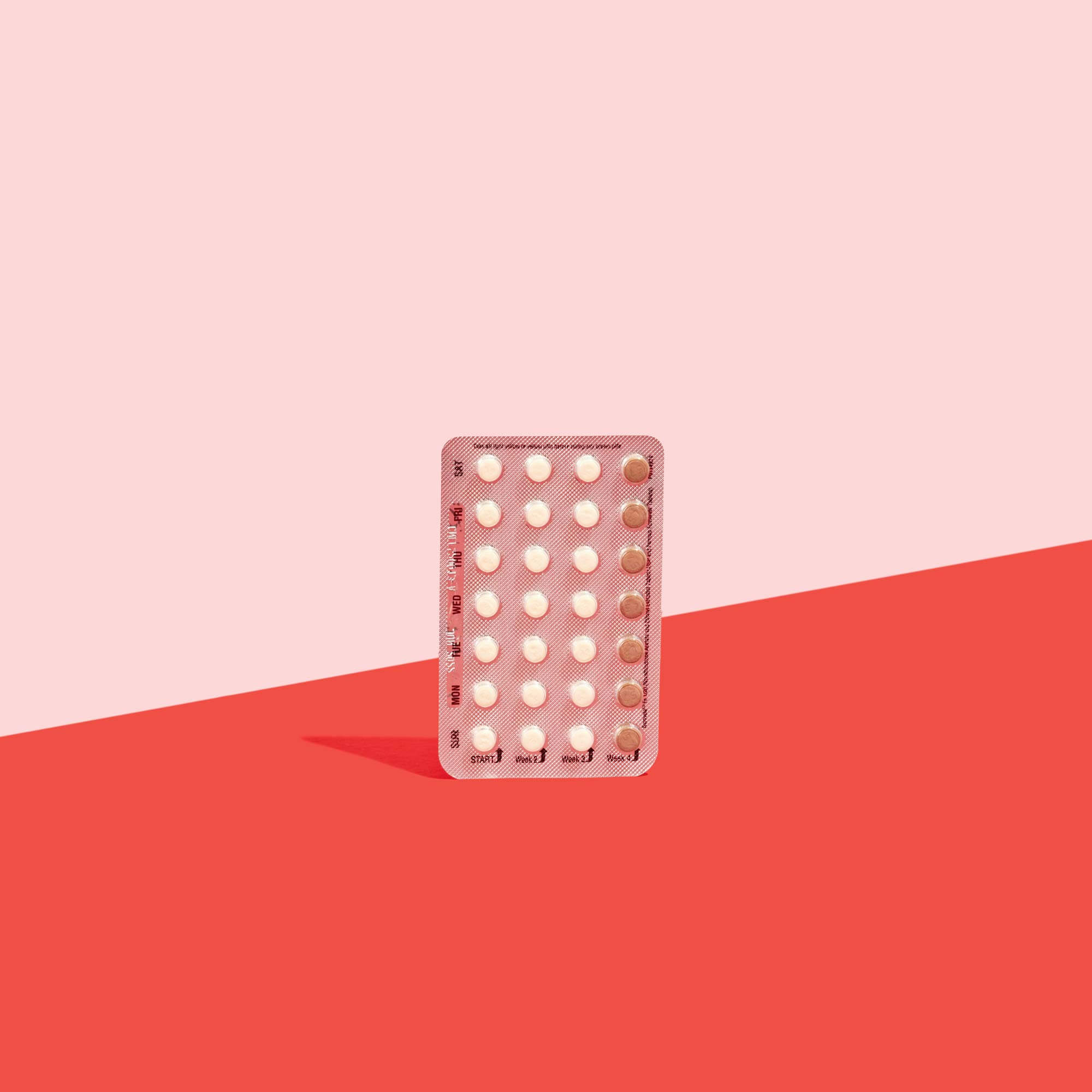
This is Your Brain on Your Period
By Audrey Cabanel
October 9, 2023
It’s important to know that the first thing to come up on google when I typed “period mental health” is: Common symptoms include: irritability, depressed mood, anxiety or mood swings. LOL, you think?
Truth: the fact that people with periods are able and EXPECTED do their job, take care of themselves and other people, maintain relationships and simply function on a daily basis is mind boggling and they should be celebrated EVERY DAY.
Why do I feel like this during my period?
Let’s be honest, your period isn’t something that comes and goes like a sprinkle on a summer morning. Periods are like a full on hurricane that leave very little unaffected by it. If you GIRL MATH for a second, we only really spend about 1 week per month feeling “normal”—whatever that means. Meanwhile, the rest of the month we spend on a rollercoaster of emotions, navigating what feels like a renaissance painting of daily life. And if you’ve got pre-existing ADHD, anxiety or depression, forget about it. You feel like the world is swallowing you up and that you are going absolutely bonkers. Deep breaths, my dear, we’re here to give you all the information you need to better understand how your period can impact your mental health and ways you can cope with it. Period stigma is still very real, and we are here to tell you that we see you and you are NOT crazy.
Up until recently, women and menstruating people had very little control over their cycle as it was an “expected” phenomenon that women had to deal with while through the ebbs and flows of their everyday lives. What wasn’t accounted for was the physical and emotional effect that periods have on women, and how menstruation can (at time) reduce functionality. Especially if you suffer from endometriosis or PCOS, periods can be very disabling and painful. Having your period can feel like you have absolutely no control over anything whatsoever. We want you to feel like the control is back in your hands, whether you want to Delay Your Period or Skip Your Period completely, the choice should be yours. Although we are very lucky to now have access to methods of controlling your cycle, what we need to work on is the stigmatization of the effect your period has on your mental health. So let’s TALK ABOUT IT!
Does PMS make me moody?
Most people are familiar with the term PMS which stands for Premenstrual Syndrome. About 90% of people with uteruses experience it. But it feels like we don't know about the toll PMS and period hormone fluctuations can have on your mental state and wellbeing. Part of the stigma comes from the patriarchal perpetuation of women as being “moody” during “that time of the month”. Society has often associated periods with a private part of a woman's life that is purely for child bearing purposes, while the woman is expected to be constantly perfect and presentable on the outside. The actual truth is your period can strongly impact your mental health and we are here to tell you it’s okay!
PMS happens 1 to 2 weeks before you actually start bleeding and symptoms can typically go away 4 days after menstruation begins. A wise queen said to me, “I feel like I am going crazy for like 70% of each month. And only feel ‘normal’ for about 1 week out of the month”. It can totally feel like that with PMS that occurs before your period and after, you really only have about a week where you may feel less or even unaffected by your period. During that period, people will experience common symptoms like bloating, headaches, and stomach pains. Which, don’t get me wrong, totally sucks. But we sometimes overlook the effect PMS can have on your mentality. The leading mental symptom of PMS is heightened levels of anxiety. So no, you aren't paranoid, it's your period hormones playing tricks on you!
Why does PMS affect my brain?
Let’s break this down. During PMS, your estrogen and progesterone levels decrease, affecting the chemicals that are released by your brain. The receptors in your brain affect the hormonal changes, thus releasing less serotonin and dopamine. So not only are you dealing with wacky hormones, your “happy” chemicals are low enough to make you feel like your entire world is imploding. Super fun right? If you’re experiencing symptoms like:
- Panic attacks
- Strong anxiety
- Trouble thinking or focusing
- Feeling out of control
- Mood swings
- Feelings of sadness or despair
These may be symptoms of Premenstrual Dysphoric Disorder (PMDD). About 5-10% of people with uteruses are affected by this form of intense PMS. If you feel that it is impacting your mental health so severely, and negatively affecting your relationships we recommend that you seek help with your health practitioner. Just because we are expected to have our period every month, does not mean we should be expected to suffer.
How does PMS affect anxiety and ADHD?
Anxiety is actually one of the most common mental health symptoms caused by PMS, which is often overlooked due to the physical symptoms we experience like bloating, headaches, and cramps. Don’t get me wrong, period cramps can be so brutal that people with uteruses should be granted a lot more grace when they are suffering. A friend of mine recently said that if people with periods had even 1 day of period leave a month, the world would function a lot better. Periods can be debilitating and to be honest, “A cis-man would never live through one (period).” When you are PMS-ing, you feel like you’re sorta going nuts. Everyone is out to get you, you’re taking everything personally, you have 4 million things to do and you are suddenly aware of every single person around you? It’s not you, it's your period. We are here to tell you that you really aren’t alone.
Especially if you already have anxiety, depression or ADHD, your PMS and period can heighten these symptoms making you feel much worse during these times. ADHD symptoms are affected by many of the same brain chemicals as PMS, meaning that people with ADHD are twice as sensitive to the hormone fluctuations. People with ADHD often feel anxious, but add PMS hormones to mix and you’ve got a bad cocktail. Symptoms that occur when low estrogen meets ADHD are:
- Sleep problems
- Depression
- Mood swings
- Anxiety
- Irritability
- Confusion
- Fatigue
So it is very valid and fair that you feel deeply frustrated when you are on your period, on top of having a neurodiverse brain. Don’t get me wrong, we love ADHD superpowers, but sometimes it can be overwhelming. A fellow ADHD queen recently told me that, “My period completely alters my brain chemistry. I don’t feel like myself when I am on it.” When you have ADHD, you aren’t just distracted—your brain works differently and you can become hyper-aware of the world around you. This hyperfocus can feed into anxiety, which can feel especially strong during PMS or when you are on your period. Alternatively, you can also feel in daze, distracted and not present. These common ADHD symptoms can feel much stronger during PMS. I know this sounds like a huge mountain of problems, but there are ADHD friendly ways to make this seem less daunting and more manageable.
Whether you have a neurotypical or neurodiverse brain, you shouldn’t have to feel like the world is ending every single month. Someone recently told me, “This happens every month, and it still kicks my butt every time.” So let’s talk about coping strategies that are do-able and not hard to implement in your daily routine, to restore some of the control you may feel you’ve lost!
How do I deal with all of this?
One of the best ways to pre-empt the mental toll your period has is to start clocking and writing down how you feel. It can be as simple as a few words or a whole journal entry. A good friend of mine said, “Tracking my period moods really helped me feel less chaotic and more validated.” Getting those thoughts, that can be dark and scary at times, out of your head and onto paper feels freeing at times. You can then go back each month and see how you were feeling. You’ll probably start to notice a pattern, and you can better understand and rationalize by saying, “Yes this is my period brain, it is okay to feel this way, and it is because of my period.” If you understand the timeline of these emotions in conjunction with your cycle you can even set up treatment like birth control to help regulate your hormones. Even just for peace of mind, you can understand why you feel the way you do.
You may be thinking your ADHD brain can’t commit to any of these tracking journaling methods right now, and believe me, I get it. So from one ADHD queen to another, 1 step at a time. You can begin with just throwing in a list on your phone (quickly done and easily accessible) of the way you are feeling pre-period. Then you can just casually start to notice repeated moods and have peace of mind that you are in the PMS phase. This should give you some relief to understand why you feel so “crazy.”
Stress reduction techniques or therapy are also a great way to give you some peace. Whether it is running around the block, watching a funny show, calling your therapist or meditating. Find what makes you feel happy and calm, and try to implement that into your routine in relation to your cycle. Say you know start to notice a pattern of high anxiety about 4 days before you start menstruating. You could line up things that bring you joy during those days to cope and pre-empt the emotions. I know, easier said than done, routine implementation is hard, but you got this! It can be so small, just anything that may bring you peace of mind.
Take back control
To be honest, you may just be sick and tired of feeling out of control when it comes to the side-effects your period has on your physical and mental health. That’s super fair. Birth control may be what you need to help you reclaim that control and feel better. Wisp’s Control Your Cycle gives you access to birth control options that target different period symptoms and provide relief. Whether you are using a regulating birth control, or you want to Delay or Skip Your Period, the choice is yours. You should never feel stuck, and that’s why we are here to offer you ways of dealing with the struggle that can be menstruation.
We are doing a lot better about de-stigmatizing mental health nowadays. But when it comes to the effect menstruation has on your morale and brain, there is a lot more conversation that needs to be had. That’s why we are here, to make you understand that you should not have to suffer in silence. We already deal with enough outside stressors that impact our mental health on a daily basis, we should not have to feel like we are going nuts every month without understanding why. So whether it is a quick tracking of your emotions during PMS, or seeking therapy, or going on birth control to regulate your hormones, we want you to know that you should have access to discussions and ways of dealing with your period’s effect on your brain.
Control Your Cycle with Wisp

Delay Your Period (Norethindrone Acetate Tablets)
Starting at $39
Delay Your Period for up to 20 days for special events, competitions, or vacations. Not a form of birth control.

Skip Your Period
Starting at $22
Skip Your Period long-term with birth control options delivered to your door.

Delay & Vacay Bundle
$70
Press pause for up to 10 days on your period—perfect for romantic getaways, beach vacations, and anywhere else your heart takes you.

Zofran (Ondansetron) | Nausea Relief
Starting at $24
A prescription anti-nausea medication to treat nausea caused by new medication or antibiotics, hangovers, and indigestion.

